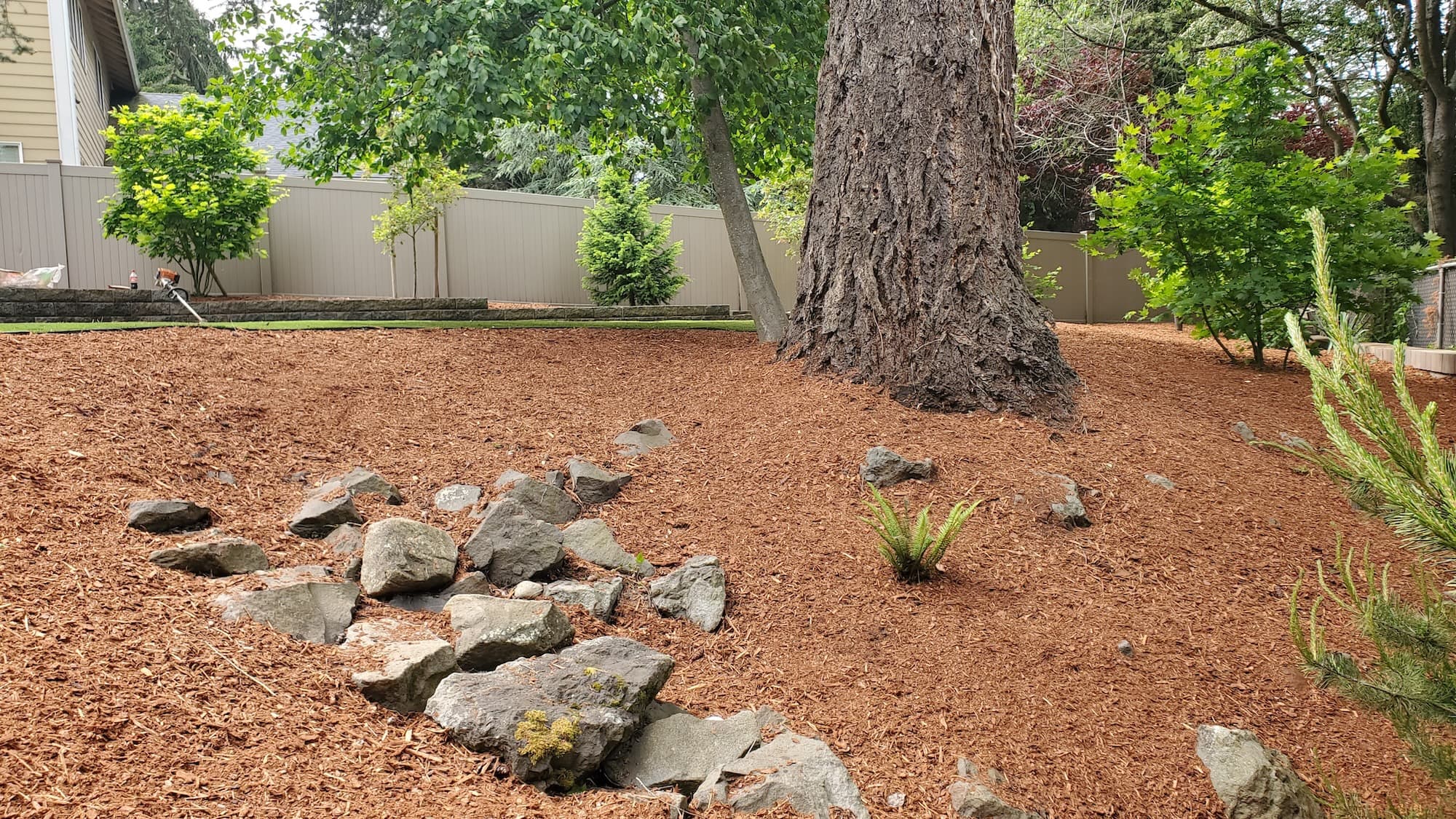Mulch Old Mulch Removal
Homeowner’s Issue
In Mulch, yards face wet winters, compacted soils, and shaded corners that hold moisture — especially near White Center and parts of West Seattle. Homes often sit on loamy to silty soils that drain slowly; combined with heavy rain and shady exposures, old mulch tends to mat, compact, and trap excess water. That creates moss, fungal patches, and recurring weeds that frustrate homeowners and HOA boards alike.
Slopes and tight edging add another challenge: overloaded mulch can slide, clog drains, and hide irrigation problems. In sunnier beds, old bark breaks down into fine particles that repel water and stifle roots. Curb appeal suffers when mulch ages unevenly or turns patchy. Homeowners want a clean, low-maintenance finish that respects local drainage rules and avoids harsh chemicals. I’ve been landscaping Seattle neighborhoods for 15 years, so we focus on practical, sustainable fixes — improving soil contact, restoring drainage on slopes, and keeping beds tidy for easier, long-term care.
Our Quality Service
We assess your bed conditions, test drainage, and remove old mulch without herbicides. Work is hand-driven and focused on preserving plant crowns and soil structure, then we prep the bed for new material or a different finish.
- Sustainable removal and disposal, prioritizing composting or green-bin options.
- Addressing slope runoff, edging, and soil compaction as we go.
- Optional amendments: compost top-dressing to boost soil life before new mulch.
Benefits: safer plants, better drainage, long-lasting curb appeal, and lower maintenance between visits.
What’s Included
- Onsite assessment and photo estimate
- Careful removal of old mulch and debris
- Hand-raking and light soil aeration where needed
- Disposal via composting or local green-bin haul-away
- Basic bed prep for new mulch or alternative groundcover
Options / upgrades:
- Mulch + landscape fabric for high-traffic areas
- Organic, hand-based weed control and ivy removal (no herbicides)
- Compost/top-dress soil amendment
- Haul-away vs. green-bin composting
Before & After / Expectations
We’ll be honest: expect noise from rakes, wheelbarrows, and trucks, and some temporary soil dust. Most standard beds are cleared in a few hours; larger yards or steep slopes may take a full day. We’ll need close driveway access and a parking spot for our truck and trailer.
Care tips after service:
- Keep mulch 2–3” deep; avoid piling against trunks or stems.
- Water new beds lightly after installation to settle materials.
- Hand-pull weeds early; moss is best handled by increasing light and airflow.
- Replenish organic mulch annually in winter or early spring.
FAQs
Q: How soon can you start?
A: Fast scheduling is common; small jobs often booked within a week, larger projects in 1–2 weeks.
Q: Do you use herbicides?
A: No. We use hand-removal, organic methods, and physical barriers when needed.
Q: Are there disposal fees?
A: Sometimes — we include clear upfront pricing for haul-away or green-bin composting options.
Q: Best season for this work?
A: Fall and spring are ideal for bed refreshes; we also do safe winter work on mild days.
Call to Action
Mulch homeowners: ready for a cleaner, more functional yard with sustainable methods? Book a free estimate — quick scheduling, reliable crews, and local experience from a Seattle team that focuses on lasting results.
Email: neatandtidyseattle@gmail.com
Phone: 206-538-9344
Mon–Sun: 9am–6pm










